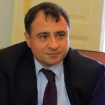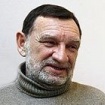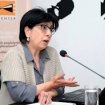Cooperation between the EU and EaP States 10 Years Later: What Lies Ahead?: Page 4 of 7
...
Boris Navasardyan – Until 2012, the more or less significant political forces of Armenia, to one degree or another, declared European integration to be their creed. With the more vividly expressed open confrontation between the European and Russian vectors, most of the political landscape began to support the reorientation towards the Eurasian project. Today, the vast media and other resources owned by the opponents of the "velvet revolution" have made all of Europe (its values, lifestyle, politics) a target of frantic criticism and bashing. And the new government shyly bypasses the mention of European origin of its domestic political agenda. In the context of the topic, I would qualify the above-described process as a deepening crisis of national identity, caused by political conditions and the pressure of propaganda. Indeed, there can be no doubt about the strong European component of the Armenian identity.
On Russia as a Factor for the Development of Relations between the EU and EaP Countries
Boris Navasardyan – Probably, certain changes should be expected regarding the factor of Russia in the EaP countries. If the first steps of this EU initiative, contrary to official statements, indicated that the farther the partners moved away from Moscow, the closer they got to Brussels. Today, a number of influential members of the European Union are inclined to adhere to the inverse formula: the fewer problems the eastern neighbor has with Russia, the more reliable the cooperation with it. The foregoing, of course, does not apply to Ukraine. But in relation to others - with varying degrees of probability - this formula may turn out to be relevant. If my assumption proves right, it will be possible to talk about rolling out integration potential of the Eastern Partnership, whatever form it takes.
The return of Russia to its active role in the Council of Europe is an additional factor, too. Given the expected greater focus of the European Union and its newly formed institutions on their own concerns (there was even a risk of liquidating the post of Commissioner for Enlargement and Neighborhood), the Council of Europe, relying on the resource support of Brussels, has a chance to regain its significance in the EaP region. Of course, we are talking about issues related to democratization and human rights. And this, in turn, will testify to overcoming, to a certain extent, the differentiation of the European policy regarding the Russian Federation and other the Council of Europe members in the post-Soviet space.
Hennadyi Maksak - The factor of Russia has significantly increased in relations between partner countries and the EU. However, the negative context of influence prevails. Firstly, after Russia's aggression in Ukraine, the EU took several steps in pursuing a sanction-based policy against Russia in order to urge the Kremlin to stop violating the sovereignty of Ukraine. And, naturally, Russia is a vividly expressed fault line for the countries of the EaP, which undermines the EaP’s goal of unification. In Ukraine, Russia’s return to the Council of Europe is perceived very negatively, which is another proof of the decline of this







 +37410 563363
+37410 563363
 1/3 Buzand Str, 8 Floor, Yerevan, Armenia
1/3 Buzand Str, 8 Floor, Yerevan, Armenia